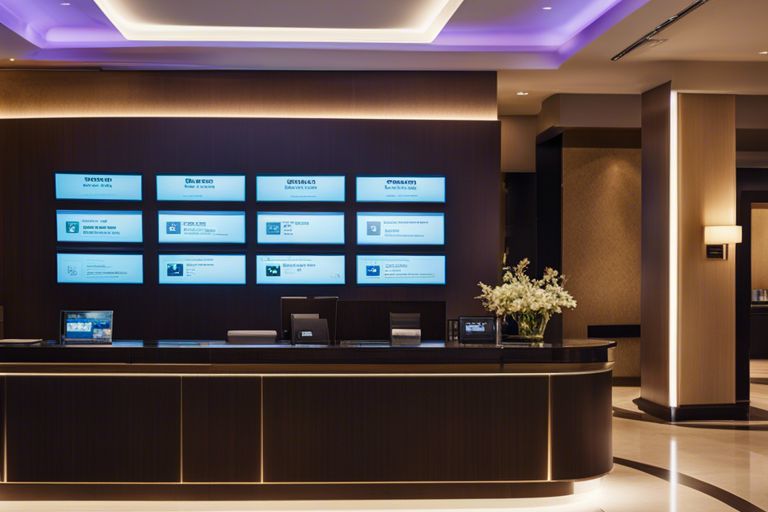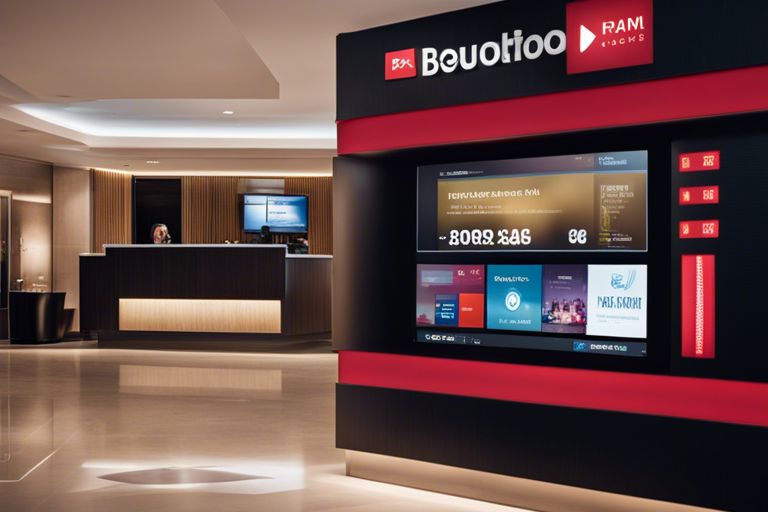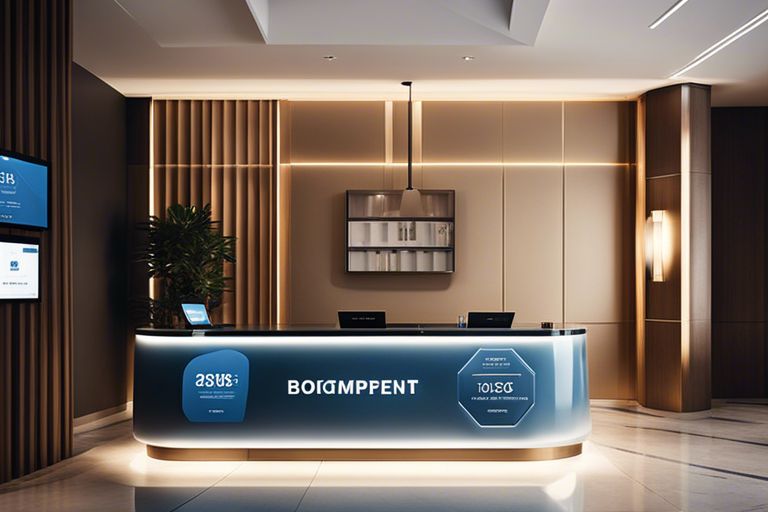Maximizing the potential of your hotel’s website is crucial in today’s competitive hospitality industry. With the increase in online bookings, having a well-optimized website can significantly boost your revenue and occupancy rates. In this comprehensive guide, we will explore essential strategies and techniques to help you optimize your hotel’s website effectively and ultimately drive maximum bookings.
Table of Contents
- 1 The Foundation of a High-Converting Hotel Website
- 2 Improving On-Page Content for Better Engagement
- 3 Leveraging Booking Engine Features for Increased Conversions
- 4 SEO Strategies to Boost Your Hotel Website’s Visibility
- 5 Utilizing Social Media to Enhance Hotel Bookings
- 6 Analytics and Adjustments for Ongoing Optimization
- 7 FAQ
- 7.0.1 Q: Why is it important to optimize a hotel’s website for maximum bookings?
- 7.0.2 Q: What are the key elements to consider when optimizing a hotel website?
- 7.0.3 Q: How can a hotel website improve its search engine ranking?
- 7.0.4 Q: What role does user experience play in maximizing bookings on a hotel website?
- 7.0.5 Q: How can a hotel website integrate effective call-to-action (CTA) for increasing bookings?
Key Takeaways:
- User-Friendly Design: Design your hotel website with an intuitive and easy-to-navigate layout to enhance user experience and encourage bookings.
- Optimized Content: Create high-quality, search engine optimized content to improve your website’s visibility and attract more potential guests.
- Mobile Compatibility: Ensure your website is mobile-friendly to accommodate the growing number of users booking through their smartphones and tablets.
- Call-to-Action (CTA): Utilize compelling CTAs on your website to prompt visitors to take action, such as booking a room or signing up for exclusive offers.
- Integration of Online Booking Systems: Implement an efficient and secure online booking system to streamline the reservation process and encourage direct bookings on your website.

The Foundation of a High-Converting Hotel Website
Some hotel websites struggle to convert visitors into bookings, but by optimizing your website, you can significantly increase your conversion rate. For more detailed information on this topic, you can read 5 Ways to Optimize Hotel Websites for Increased Conversions.
Identifying Your Unique Selling Proposition (USP)
Website optimization begins with identifying your hotel’s unique selling proposition (USP). What sets your property apart from the competition? Whether it’s your stunning location, exceptional service, or exclusive amenities, your USP should be prominently featured throughout your website to capture the attention and interest of potential guests.
Furthermore, your USP should be integrated into your hotel’s branding, messaging, and marketing strategies to create a consistent and compelling narrative that resonates with your target audience and sets you apart from other properties.
Creating a Visually Appealing and User-Friendly Website Design
On your hotel’s website, a visually appealing and user-friendly design is crucial for capturing and retaining the interest of your website visitors. Your website should feature high-quality images and easy navigation to showcase the unique ambiance and offerings of your property. Intuitive booking tools and engaging content can also enhance the user experience and lead to increased conversions.
Your website design should also be responsive and optimized for various devices to ensure a seamless experience for all visitors, regardless of the device they are using to access your website.
Your website’s design and user experience play a critical role in influencing a visitor’s decision to book a stay at your hotel.
Ensuring Mobile Optimization for Enhanced User Experience
User-friendly mobile optimization is essential for a seamless browsing and booking experience. With an increasing number of travelers using their smartphones and tablets to research and book accommodations, a mobile-optimized website is imperative for capturing this market segment. A smooth, intuitive mobile experience can greatly improve conversion rates and set your property apart from the competition.
Experience and user satisfaction on mobile devices can directly impact your hotel’s bookings and revenue.
Implementing Fast Loading Speeds to Reduce Bounce Rates
Website loading speed is the foundation of a positive user experience. Slow-loading websites can lead to high bounce rates, as impatient visitors are likely to leave your site and book elsewhere. By implementing fast loading speeds, you can appeal to potential guests and provide a smoother browsing and booking process, ultimately increasing your conversion rates and revenue.
Appealing loading speeds are crucial for retaining visitors and encouraging them to explore your website and complete their booking.
Improving On-Page Content for Better Engagement
To optimize your hotel’s website for maximum bookings, it’s crucial to focus on improving the on-page content to better engage potential guests. From crafting compelling hotel descriptions to utilizing high-quality images, there are several strategies that can significantly enhance the user experience and drive more conversions.
Crafting Compelling and SEO-Friendly Hotel Descriptions
Better hotel descriptions not only provide potential guests with essential information about your property but also play a crucial role in improving search engine visibility. By incorporating relevant keywords and highlighting unique selling points, you can capture the attention of both search engines and potential guests. Make sure to create compelling and authentic descriptions that accurately represent the experience guests can expect, ultimately influencing their booking decisions.
Using High-Quality Images and Videos to Showcase Your Hotel
Your website’s visual content has a powerful impact on guests’ perceptions of your hotel. High-quality images and videos can effectively showcase your property’s amenities, ambiance, and overall experience, influencing potential guests to make a booking. To captivate your audience, invest in professional photography and videography that accurately represent the unique features of your hotel, and consider incorporating virtual tours to provide an immersive experience for online visitors.
To further enhance user engagement and search engine optimization, optimize image alt text and filenames with relevant keywords, improving the discoverability of your visual content.
Developing a Content Marketing Strategy for Continuous Engagement
Developing a comprehensive content marketing strategy can contribute to continuous engagement with your audience. Regularly publishing relevant blog posts, destination guides, and curated local experiences not only provides valuable information to potential guests but also establishes your hotel as an authority in the industry. This ongoing engagement can foster loyalty and trust, ultimately leading to increased bookings and guest satisfaction.
Continuous content creation and distribution across various channels such as social media, email newsletters, and collaboration with travel influencers can widen your reach and improve your hotel’s online visibility and brand reputation.
Utilizing Customer Reviews and Testimonials to Build Trust
OnPage customer reviews and testimonials serve as powerful tools for building trust and credibility among potential guests. Positive reviews not only provide social proof but also influence the decision-making process of prospective guests. Encourage satisfied guests to leave reviews and showcase them prominently on your website to reassure potential guests of the quality and experience your hotel provides.
Testimonials and reviews play a crucial role in improving your hotel’s reputation, and responding to feedback, whether positive or negative, demonstrates your commitment to guest satisfaction and continuous improvement.

Leveraging Booking Engine Features for Increased Conversions
Unlike traditional booking methods, a modern hotel website’s booking engine is equipped with several advanced features that can significantly increase the conversion rate. By leveraging these features effectively, hotels can streamline the booking process, highlight special offers, integrate upselling and cross-selling strategies, and offer multiple payment options for maximum convenience.
Simplifying the Booking Process for Ease of Use
Conversions are heavily dependent on the ease and convenience of the booking process. By integrating a user-friendly interface, enabling a quick and intuitive reservation process, and providing real-time availability of rooms, hotels can drastically improve their conversion rate. Implementing a clear and straightforward layout for selecting dates, room types, and additional preferences, accompanied by instant confirmation, can greatly enhance the overall user experience.
Highlighting Special Offers and Packages to Encourage Bookings
Leveraging special offers and packages within the booking engine can ignite user interest and lead to higher conversion rates. By prominently displaying seasonal discounts, promotional packages, and exclusive perks such as free breakfast or spa vouchers, hotels can effectively influence travelers’ decision-making process and ultimately drive bookings.
For instance, offering keywords such as “exclusive offer,” “limited time deal,” or “discount package” can capture the attention of potential guests and entice them to make a reservation.
Integrating Upselling and Cross-Selling Strategies
Features such as displaying room upgrade options, promoting add-on services like airport transfers or meal packages, and suggesting related room amenities during the booking process can significantly enhance the overall revenue and customer satisfaction. By strategically integrating upselling and cross-selling strategies into the booking engine, hotels can maximize their profit margins while providing a tailored booking experience for guests.
Any opportunity to showcase keywords like “exclusive upgrade,” “special offer on amenities,” or “complimentary services” can impact the guests’ decision to enhance their booking.
Offering Multiple Payment Options for Convenience
Process
Upselling, Allowing guests to choose from various payment methods such as credit card, digital wallets, or direct bank transfers can significantly expand the customer base and improve the overall satisfaction of the booking experience. Providing secure and convenient payment options can eliminate any potential friction during the final stage of booking, resulting in a higher conversion rate and positive guest sentiment.
SEO Strategies to Boost Your Hotel Website’s Visibility
Despite the growing competition in the hotel industry, achieving a prominent online presence is crucial for driving maximum bookings. Implementing strong SEO strategies can significantly boost your hotel website’s visibility and attract more potential guests. To learn more about comprehensive hotel website optimization, check out our 9 Easy Hotel Website Optimisation Hacks for Maximum Bookings.
Conducting Keyword Research to Target Potential Guests
For your hotel website to rank higher on search engine results pages, it’s essential to conduct thorough keyword research. Understand your potential guests’ search behaviors and preferences to strategically incorporate relevant keywords into your website content. By targeting long-tail keywords and local search terms, you can increase your website’s visibility to potential guests actively looking for accommodation in your area.
Optimizing Meta Titles, Descriptions, and Header Tags
Hotel websites can benefit greatly from optimizing meta titles, descriptions, and header tags. Incorporating targeted keywords into these elements can improve your website’s relevancy and attract more organic traffic. Craft compelling and unique meta descriptions to entice potential guests to click through to your website, and ensure that your header tags reflect the most important information about your hotel.
Tags such as h1, h2, and alt attributes play a crucial role in conveying the relevance of your content to search engines, so it’s important to optimize them effectively.
Building a Strategic Backlink Profile to Improve Domain Authority
Building a strategic backlink profile is essential for improving your hotel website’s domain authority and credibility. Seek opportunities to acquire high-quality backlinks from reputable sources within the travel and hospitality industry. By earning backlinks from authoritative websites, you can enhance your website’s visibility and establish trust with search engines.
Creating Local SEO Tactics to Attract Nearby Guests
Authority local SEO tactics can help your hotel website attract nearby guests and drive more direct bookings. Claim and optimize your Google My Business listing, and ensure consistent business information across all local directories. Implementing a hyperlocal content strategy and seeking local partnerships can significantly improve your visibility to potential guests within your area.
Utilizing Social Media to Enhance Hotel Bookings
Keep ahead of the game by leveraging the power of social media to drive hotel bookings. With the digital landscape constantly evolving, it’s crucial to stay updated on the latest strategies. For more detailed insights, check out our blog post on 20 Ways To Optimize Your Hotel Website.
Developing a Strong Social Media Presence Across Platforms
Media presence across various social platforms is essential for reaching potential guests. By maintaining an active and engaging presence on platforms such as Facebook, Instagram, and Twitter, hotels can significantly increase their visibility and attract more bookings. Consistency and quality are key factors in building a strong social media presence that resonates with the target audience.
Crafting Engaging Content to Stimulate Interest and Shares
On social media, the power of compelling content cannot be overstated. By creating visually appealing and informative posts, hotels can capture the interest of potential guests and encourage them to share the content with their networks. This creates a ripple effect, increasing the hotel’s online visibility and driving more traffic to the booking channels.
Social engagement, storytelling, and user-generated content are some of the strategies that can be employed to craft compelling content that resonates with the audience and stimulates shares across social platforms.
Implementing Social Media Advertising to Reach a Larger Audience
Advertising on social media platforms allows hotels to target specific demographics and reach a larger audience of potential guests. With advanced targeting options and the ability to track the performance of ad campaigns, social media advertising presents a powerful opportunity to increase exposure and drive direct bookings.
A strategic approach to social media advertising can yield a high return on investment and contribute to the overall success of a hotel’s digital marketing efforts.
Encouraging Social Sharing Through User-Generated Content
Media promotion of user-generated content can be a game-changer for hotels looking to amplify their online presence. By encouraging guests to share their experiences through photos, videos, and reviews on social media, hotels can tap into the social networks of their satisfied customers and generate organic word-of-mouth marketing.
Interest in user-generated content creates an authentic and trustworthy image for the hotel, influencing potential guests’ decision-making process and ultimately driving more bookings.
Analytics and Adjustments for Ongoing Optimization
After creating an appealing and user-friendly website for your hotel, the next step is to continually monitor and optimize its performance to maximize bookings. This involves setting up and reviewing website analytics to gauge its effectiveness, identifying patterns and making data-driven decisions, conducting A/B testing to optimize conversion rates, and staying updated with trends to adjust strategies accordingly.
Setting Up and Reviewing Website Analytics to Gauge Performance
Setting up website analytics, such as Google Analytics, is crucial for tracking the performance of your hotel website. By regularly reviewing metrics such as website traffic, bounce rates, and conversion rates, you can identify strengths and weaknesses of your website and make informed decisions for improvement. This data allows you to understand user behavior, preferences, and areas that require attention to enhance the overall booking experience.
Identifying Patterns and Making Data-Driven Decisions
Patterns and trends revealed by website analytics play a vital role in making data-driven decisions for website optimization. By analyzing the data, you can identify patterns in user behavior, preferences, and booking trends. This insight enables you to tailor your website content, design, and promotions to align with customer preferences and maximize booking conversions.
Website analytics also help in identifying peak booking times, popular room types, and geographic locations of your guests. This information allows you to strategically adjust pricing and promotional offers to capitalize on peak booking periods and cater to the specific preferences of your target audience.
Conducting A/B Testing to Optimize Conversion Rates
Decisions related to website design, content, and promotional strategies can be further optimized through A/B testing. This involves comparing two versions of a webpage to determine which one performs better in terms of booking conversions. By testing elements such as call-to-action buttons, booking forms, and promotional banners, you can continuously refine and enhance your website to drive maximum bookings.
Optimization through A/B testing provides valuable insights into user preferences and behaviors, allowing you to make evidence-based adjustments that lead to improved conversion rates and a more compelling booking experience for your potential guests.
Staying Updated With Trends and Adjusting Strategies Accordingly
Updated knowledge of industry trends and changes in guest booking behaviors is essential for ongoing optimization of your hotel website. By staying informed about travel patterns, consumer preferences, and competitive strategies, you can adjust your marketing and booking strategies to effectively attract and convert potential guests.
To wrap up
Now that you have learned how to optimize your hotel’s website for maximum bookings, it’s time to put this knowledge into action. By implementing the strategies outlined in this guide, such as improving website speed, incorporating high-quality visuals, and simplifying the booking process, you can significantly increase your hotel’s online visibility and attract more potential guests. Additionally, leveraging social proof, optimizing for mobile devices, and incorporating local SEO tactics will further enhance your website’s effectiveness in converting visitors into bookings.
Remember, the key to success is regularly monitoring and adapting your website based on user behavior and market trends. By staying informed and employing best practices, you can ensure that your hotel’s website continues to drive maximum bookings and ultimately contributes to the overall success of your business.
FAQ
Q: Why is it important to optimize a hotel’s website for maximum bookings?
A: Optimizing a hotel website is crucial as it enhances visibility, improves user experience, and ultimately drives more bookings. In a competitive industry, a well-optimized website can make the crucial difference in attracting potential guests and increasing revenue.
Q: What are the key elements to consider when optimizing a hotel website?
A: Key elements for optimizing a hotel website include a user-friendly interface, responsive design, high-quality images, compelling content, seamless booking process, and integration with online booking platforms. Additionally, search engine optimization (SEO) and mobile-friendliness are essential for visibility and accessibility.
Q: How can a hotel website improve its search engine ranking?
A: A hotel website can improve its search engine ranking through relevant keyword optimization, creating quality content, obtaining backlinks from reputable sources, optimizing meta tags and descriptions, and ensuring fast page loading speed. Regularly updating content and maintaining a mobile-responsive design are also critical for search engine ranking.
Q: What role does user experience play in maximizing bookings on a hotel website?
A: User experience is paramount in driving bookings on a hotel website. It involves providing seamless navigation, intuitive booking process, informative and enticing content, as well as captivating visuals. A positive user experience not only encourages direct bookings but also enhances customer satisfaction and loyalty.
Q: How can a hotel website integrate effective call-to-action (CTA) for increasing bookings?
A: Effective CTAs on a hotel website should be strategically placed, visually appealing, and clearly communicate the value proposition. For example, “Book Now,” “Check Availability,” or “Special Offers” can prompt visitors to take action. Utilizing persuasive language and urgency can also compel visitors to make a booking decision.










